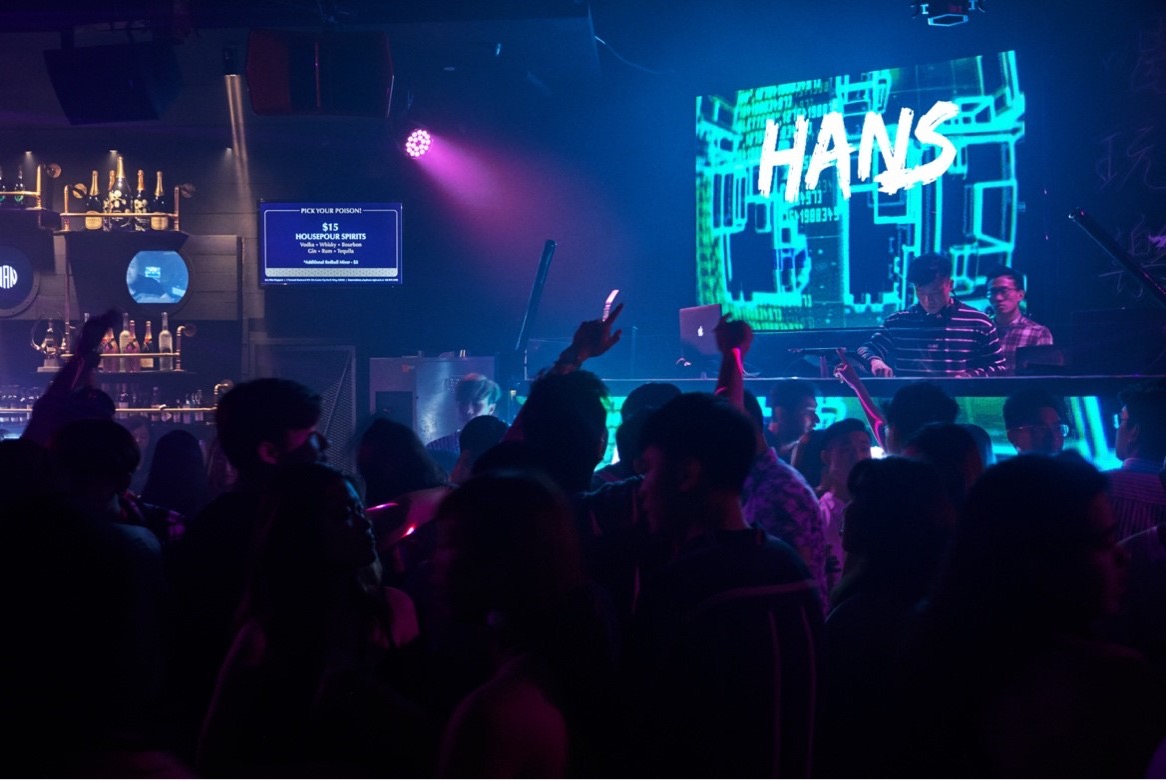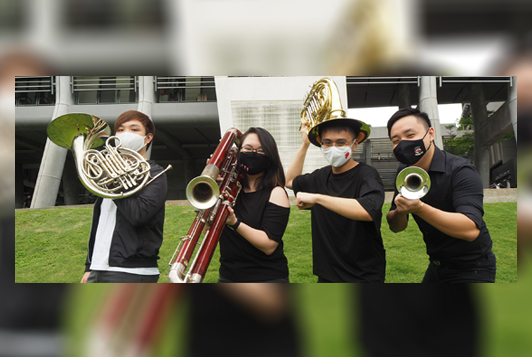Chinse New Year (CNY) (or Spring Festival) is one of the biggest celebratory events for the Chinese Singaporeans and a common tradition practiced during this time is the Lion Dance. Believed to be able to usher in prosperity and good luck in the new year, the art form has deep roots in the Chinese heritage and can be enjoyed by people from all walks of life.
NUS OSA interviews troupers from NUS CAC Lion Dance to ask them what we can all look forward to from this dynamic performance this CNY.
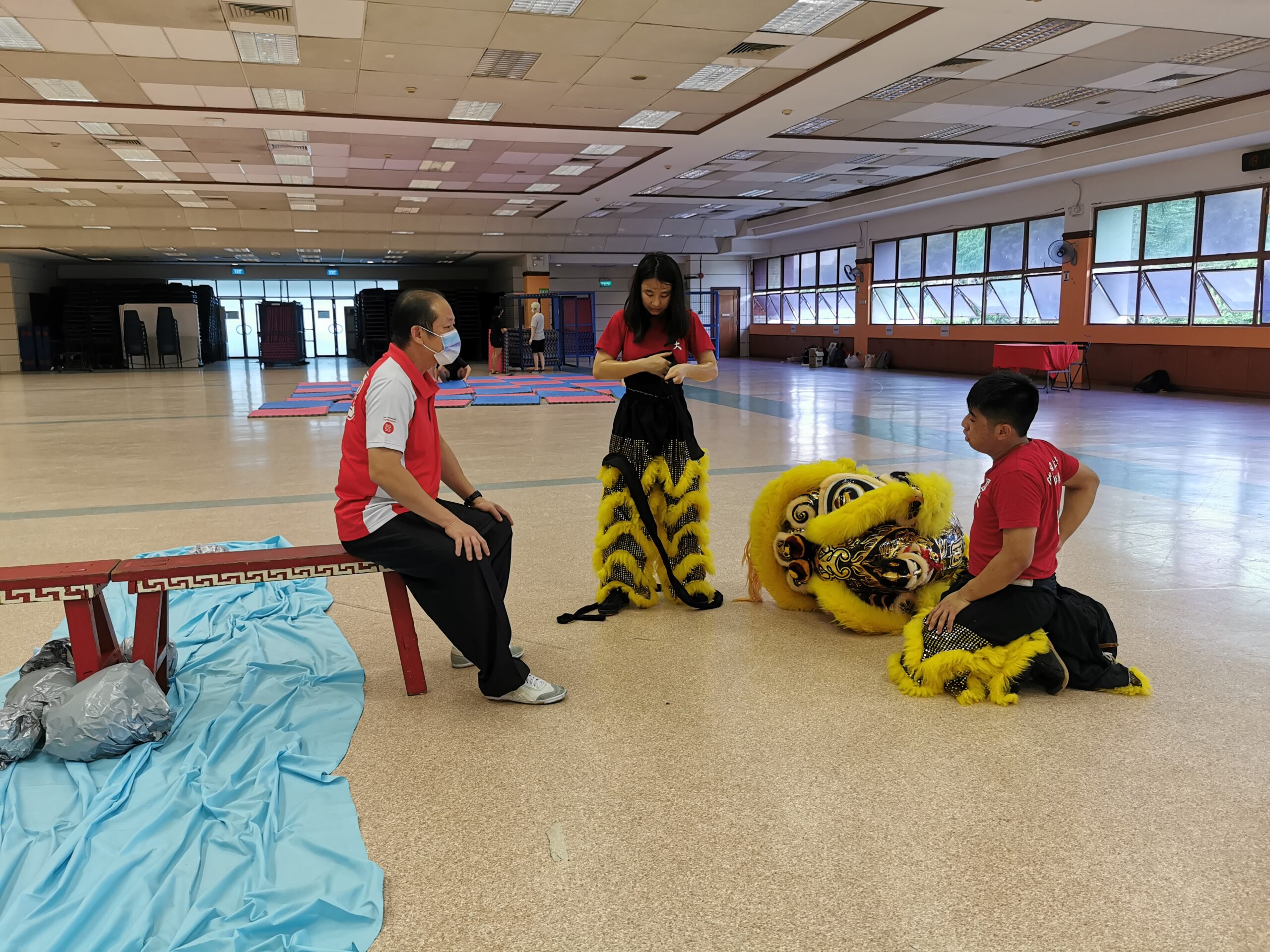
What is special about CNY2022 Lion Dance Performance this year?
Nicole, President, NUS CAC Lion Dance says: “We are doing a hybrid style this year, meaning we are doing a mix of both e-Performances (livestream) and face-to-face (physical) ones within government regulations. This enables us to serve our community more. Traditionally, we would all gather as one big troupe to perform but this year, we are limited to a small team for each performance. Despite this, we still hope to bring the CNY festive spirit to our clients.”
Ee Kin, Vice-president (External), NUS CAC Lion Dance elaborates: “As the limit of a live audience is set at 50, our clients from the various schools have opted for a livestream. Our clients include Yale-NUS College, NUS Office of Student Affairs and external parties, such as Maris Stella High School, Springdale Primary and Quest Adventures. We look forward to bringing the CNY cheer to them! Having had all our performances via Zoom last year, we are finally performing physically again this year!"
What are some items we can look forward to in CNY2022 Lion Dance Performance this year?
Jun Yu, Secretary-Treasure/ Property Manager, NUS CAC Lion Dance discloses: “Viewers can look forward to the Caiqing performance during CNY this year. Caiqing can be translated as the "plucking of the greens" and it is a traditional performance done during CNY. The lion can be seen to “pluck” the auspicious green lettuce and “spit” it back at the audience. It will also “eat” the oranges and arrange the fruit to form auspicious words or phrases and sometimes even lucky numbers.
Ee Kin asserts: “Apart from the usual Chinese New Year Caiqing, we are also taking part in CAC+US, a concert featuring all 13 subclubs of CAC. This differs slightly from our Caiqing sequence, and features a small stunt that our lion pair (helmed by Jun Yu and Nicole) has been training tirelessly on. Do check out the other acts put up by the other subclubs too - prior to joining CAC I definitely wasn't aware of all these interesting and diverse art forms!”
What do you enjoy most about Lion dance?
Zi Shu, member, NUS CAC Lion Dance conveys: “I enjoy learning and practicing this art form, and the vigour that comes with practising in the lion head - it is quite the workout. The musical component of lion dance really engages the senses from feeling the vibration from the drums in my toes to hearing the ringing from the cymbals. It makes the blood rush to my head and gets me pumped up with excitement.”
Yong Kang, member, NUS CAC Lion Dance adds on: “With the sound from the drums and cymbals, it can make the lion ‘alive’. I enjoy changing the perception of others towards lion dance and continuing this tradition, which has deep Chinese roots. Many people tend to have misconceptions or stereotypes towards lion dance as they associate it with gangs and secret society, however, this is not the case.”
Lastly, Hogan, Vice President (Internal), NUS CAC Lion Dance states: “I enjoy working as a team and our camaraderie. We get to learn and practise a traditional art which requires both musical understanding as well as physical endurance and strength.”
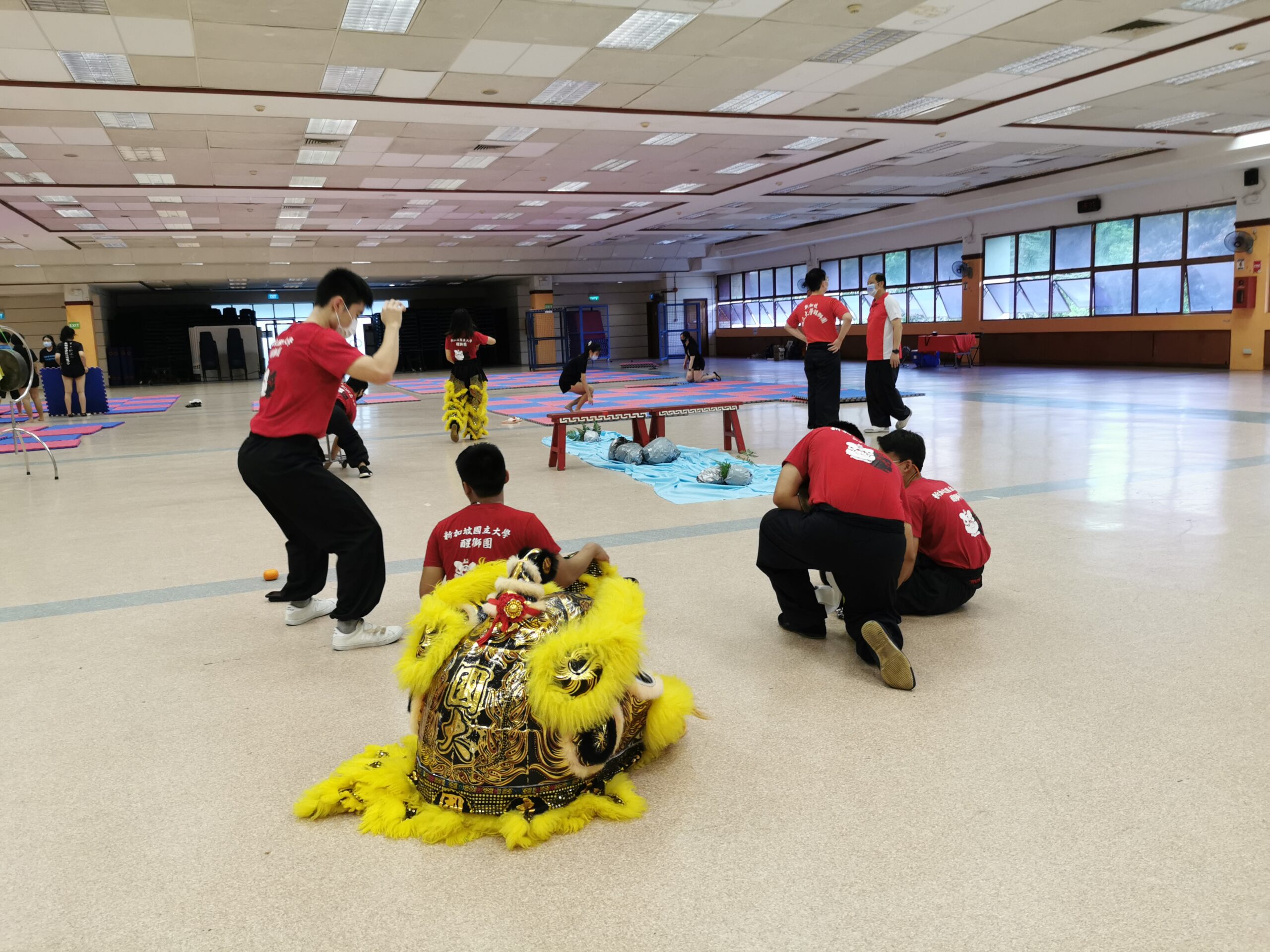
How has COVID-19 impacted your team and what were some of the challenges faced? How were they mitigated?
Jun Yu discloses: “The pandemic has certainly made training more difficult, especially with the changes in restrictions from time to time. As we were not able to train in larger groups, it was more challenging preparing for performances in our smaller teams as well. However, we all work hard to train despite the restrictions and make do with the smaller team sizes as we all want to be ready for the performances to bring the festive cheer to our audience and clients.”
Yong Kang alleges: “For lion dance where physical interactions with the environment and the audiences are of vital importance, it’s a pity that most lion dance performances must be done with minimal interactions. To overcome this challenge last year, we live-streamed our CNY performance so that they can be broadcasted to more audiences. Although it may not be the best solution, we felt that this was the only thing we can do to continue performing without losing much of the lion dancing spirit.”
Ee Kin divulges: “I am in charge of sourcing for clients. We usually do this at least a month before CNY, but the Safe Management Measures (SMMs) were not out yet. There was definitely quite a fair bit of uncertainty, but we let our clients know about prospective SMMs based of last year so that we could hit the ground running once the measures were released. We were all very excited when Minister Lawrence Wong mentioned lion dance in one of the Multi-Ministry Taskforce (MTF) meetings with the press. SMMs for Caiqing 2022 was released by our national federation, Wuzong a few days later. Unfortunately, Caiqing performances are not allowed at all residential addresses this year, and we had to let our clients know and give them the option to shift online instead.”
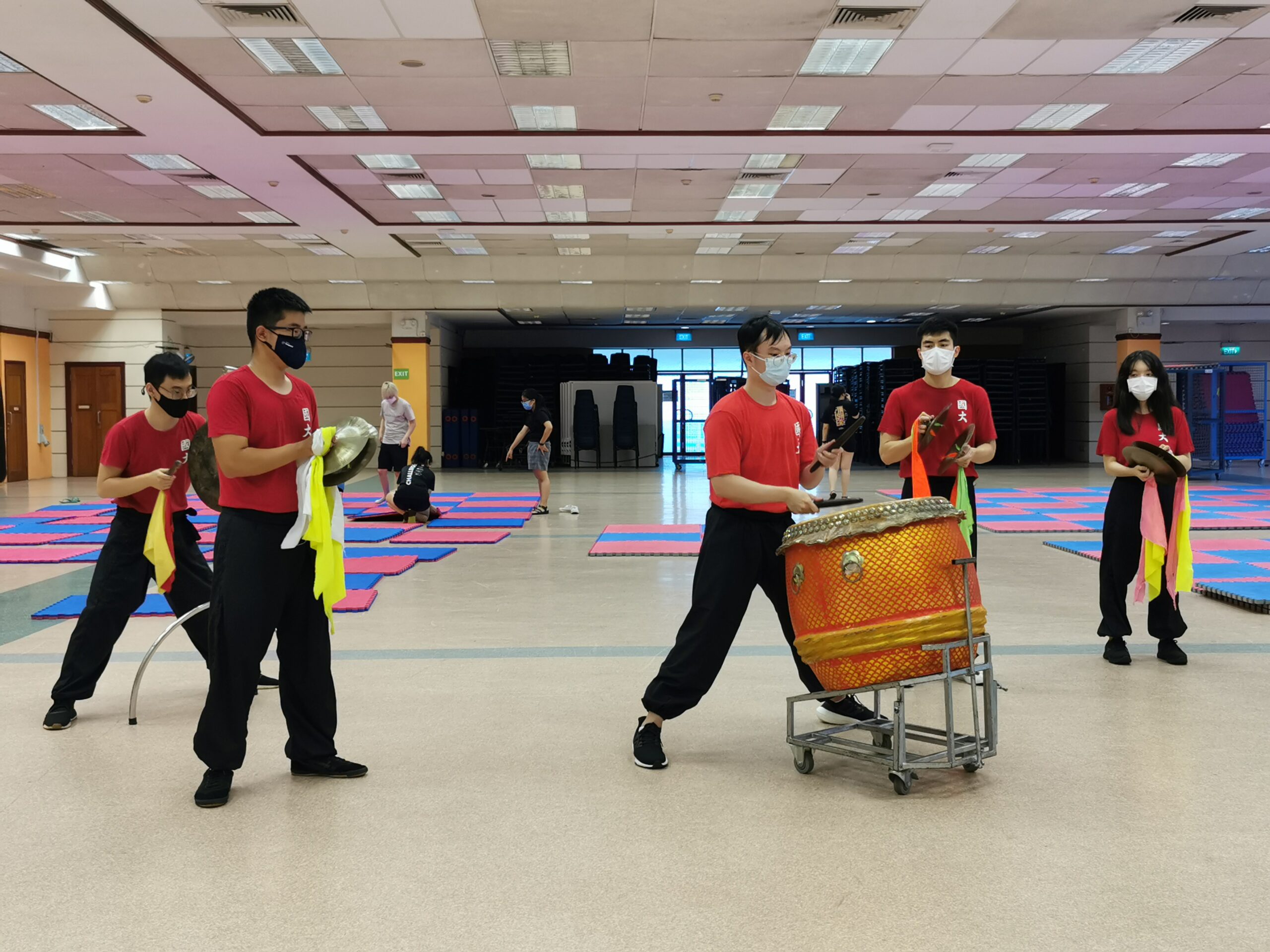
How has NUS supported you in your Lion Dance journey?
Hogan declares: “We are grateful that NUS has supported us in some form or other since we were formed around 37 years ago. Many of our clients also come from NUS – from hostels to offices and departments. We would like to thank them for supporting us, as well as the wider NUS student community.”
Ee Kin opines: “Due to some restructuring, we changed our parent organisation and joined the Cultural Activities Club (CAC) at the start of this academic year. We are very privileged to have responsive Management Committees at CAC, who worked hard to understand our processes and smoothen our transition into their club despite their busy schedules. Shoutout to the 19th and 20th CAC MC as well as our OSA Staff Advisor.
Lastly, we ask a new member what some special moments she shared with the team are.
Zi Shu, who only joined the club seven weeks ago, confesses: “I joined recently but everyone is welcoming. I look forward to performing with the other team members for the first time. I think it will be very fun and thrilling with many new experiences – playing the cymbals in harmony with the rest, and even riding on the back of the lorry to and fro the venues. I can’t wait to see everybody decked out in full performance attire!”
For prospective members who may be interested in Lion Dance:
Nicole expresses: “We believe anyone and everyone can perform as long as they practise and are willing to try.”
Jun Yu remarks: “Our team g
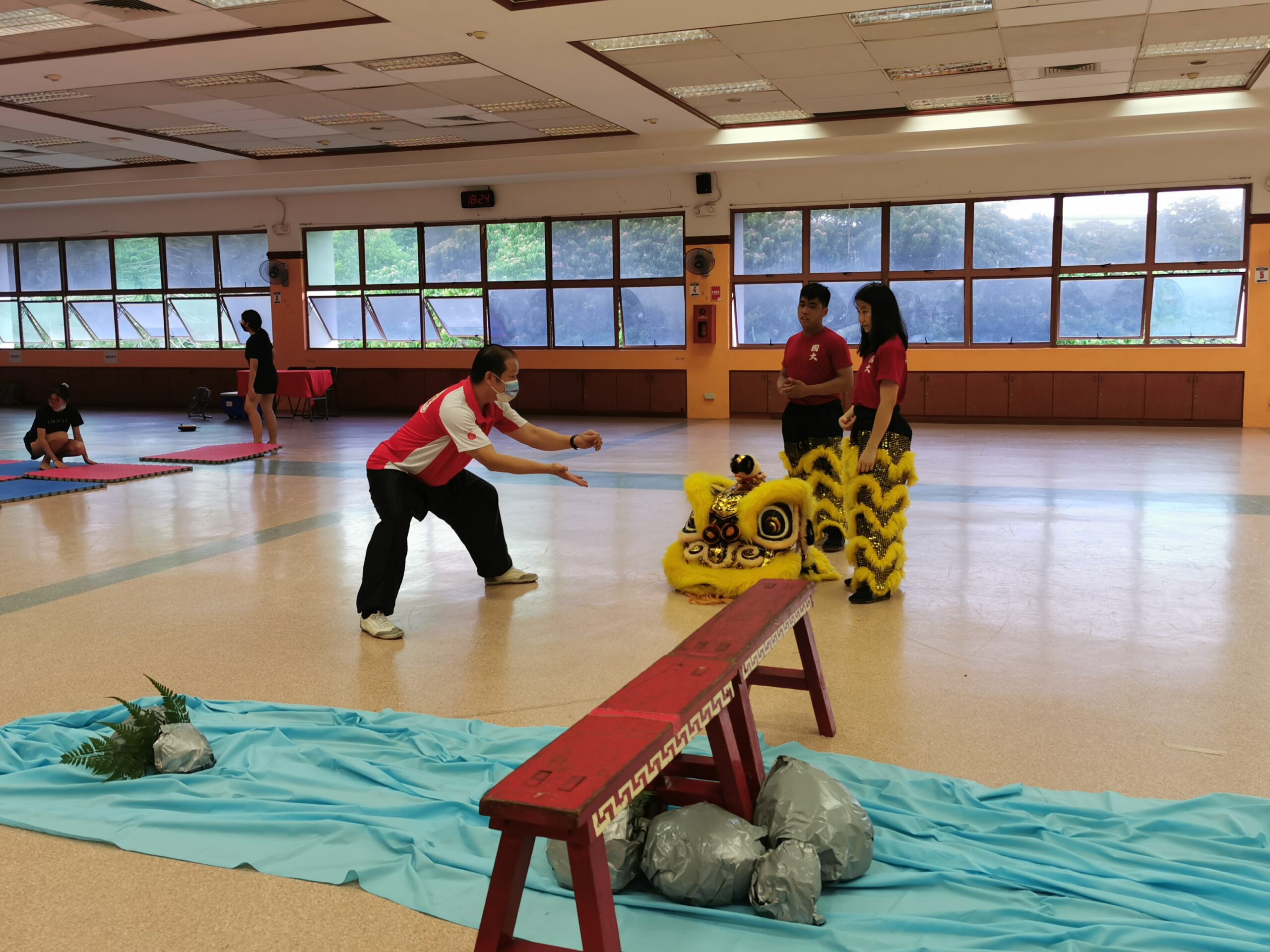
NUS CAC Lion Dance will be accepting new members (including graduate and exchange students) after CNY. Do reach out to them via their Instagram page @nusliondance if you’re interested! A montage of their performances will be released on it. More details about CAC+US will be released on NUS Cultural Activities Club (CAC)’s IG at @NUS_CAC too.
Share:
Contributor
Writer & Photographer: Shanice Poh, Year 2, NUS Business School




